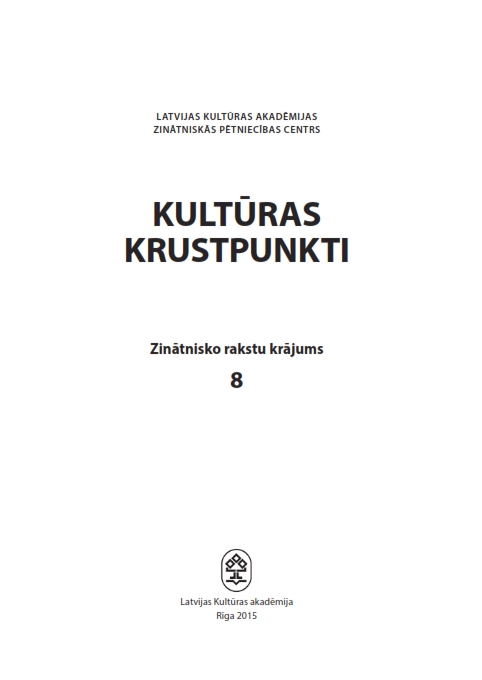THE PERCEPTION OF ASJA LACIS IN ITALY: IMPACT ON THEATRE, EDUCATION, AND POLITICS
THE PERCEPTION OF ASJA LACIS IN ITALY: IMPACT ON THEATRE, EDUCATION, AND POLITICS
Author(s): Eugenia Casini RopaContributor(s): Līva Sniķe (Translator)
Subject(s): Theatre, Dance, Performing Arts, Education, Cultural history, Political history, Sociology of Culture, Sociology of Politics, Sociology of Art, History of Art
Published by: Latvijas Kultūras akadēmija
Keywords: theatre education; theatre impact on politics; Asja Lācis; Italy;
Summary/Abstract: The 1970s in Italy proved to be the time of both intense cultural renewal and growing political tension, followed by street fights and violent terrorism. The breaking of traditional social and cultural models and high achievements went hand in hand in this stormy environment, facilitated by both the desire of the individual to break free and collective creativity. The latter was sustained by left-wing intellectuals and artists. Also felt was the necessity to secure once again the leading role of theatre in culture and society. In 1976, left-wing editor Feltrinelli published the translation of Asja Lācis’s memoirs into Italian, entitled “Professione – rivoluzionaria” (Profession – Revolutionist), with an introductory essay on agitprop theatre in the Weimar Republic by the author of the present paper. Those turbulent years were the fertile soil that ensured the positive perception of the book and its strong impact on theatre and education, as well as the political and cultural domains. The trespassing of officially established theatre boundaries, which developed the ideas of collectivism and overtness of the individual’s life, was inspired by Asja’s innovative experience – it encouraged numerous theatre artists to rediscover the ethical sense in their routine work.
Journal: Culture Crossroads
- Issue Year: 8/2015
- Issue No: 2
- Page Range: 132-138
- Page Count: 7
- Language: English

